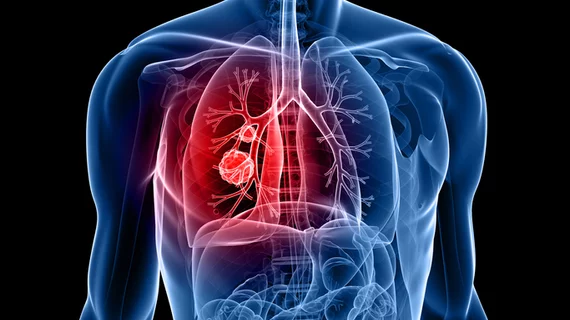RadNet, American Lung Association launch ‘revolutionary’ cancer screening program
Imaging industry giant RadNet Inc., the American Lung Association and other partners are launching a “revolutionary” cancer screening program aimed at increasing early detection.
Healthcare stakeholders in 2023 created the Florida Lung Health Coalition to begin addressing poor lung cancer screening rates. Now ahead of Lung Cancer Awareness Month in November, they’re creating a program to improve upon Florida’s low rate of imaging uptake for the disease.
Funded by grants and corporate sponsorships from the partners, eligible patients at affiliated primary care groups will be offered the FirstLook Lung test. This simple, “highly sensitive” blood test will signal whether individuals have elevated results, subsequently referring them for a low-dose CT scan.
“While lung cancer leads all cancers in mortality, fewer than 1 in 4 cases are diagnosed at an early stage," Tim Merchant, executive director of the coalition, board member, and national director of screening networks and population health for RadNet, said in a statement shared Oct. 22. "We are leading the mission to reduce the burden of lung cancer by advancing efforts to equip health systems with earlier detection programs."
Others taking part in the collaboration include Delfi Diagnostics (which makes the blood test) and hospital giant HCA Florida. Those involved said last year that they hoped to increase Florida’s LDCT uptake to 30% by 2030. Currently, it sits at about 3%, lower than the U.S. average of 6%. There are currently about 1 million residents eligible for lung cancer screening, with Florida the state with the most retirees, the partners noted.
The five-year survival rate for lung cancer is about 64% when it is detected early, according to the National Institutes of Health. That’s compared to a 9% survival rate for late-stage lung cancer, members of the coalition noted in Tuesday’s announcement.
“Lung cancer is a tremendous burden on individuals, families, and the healthcare system in the U.S. Thankfully, we are seeing incredible strides in research investigating new treatments for this disease," Harold Wimmer, president and CEO of the American Lung Association, said in the same announcement. "Collaborations like this are critical to improving early detection, improving lives of people living with lung disease and ultimately, saving lives."

